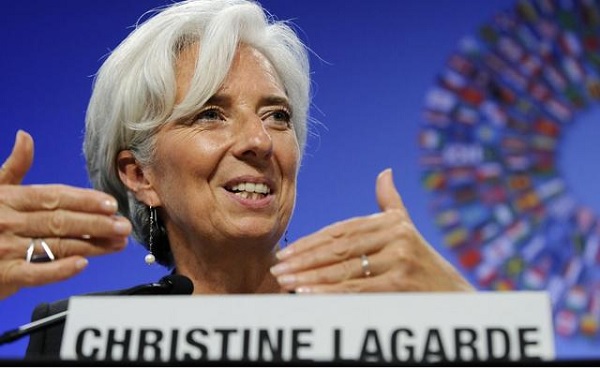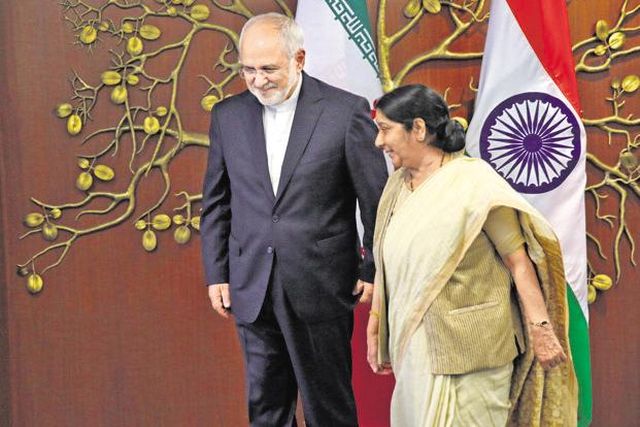
by Editor | May 25, 2021 | Employment, Overseas, World
 New York : The unemployment rate in the US fell to 3.7 per cent in September, the lowest since December 1969, when hundreds of thousands of working-age Americans were serving in Vietnam, according to a new report by the Labour Department.
New York : The unemployment rate in the US fell to 3.7 per cent in September, the lowest since December 1969, when hundreds of thousands of working-age Americans were serving in Vietnam, according to a new report by the Labour Department.
The report, which was released on Friday, said that the American economy was humming with the GDP on pace for its best year since the housing the mid-2000s, reports The New York Times.
Consumers and businesses were the most confident they have been in years with stock market indexes near record highs, it added.
Teenagers, less-educated workers and disabled Americans have also made progress in recent months and anecdotal reports suggest that companies were becoming more willing to hire people with criminal records or to waive drug-testing requirements.
But, the unemployment rates for African-Americans and Hispanics were both near all-time lows, the report said.
Republicans are hoping the strong economy will help them hold off a potential “blue wave” of Democratic victories in next month’s midterm elections.
Friday’s report was one of the last before Election Day, and President Donald Trump hailed the news on Twitter.
“Just out: 3.7 per cent Unemployment is the lowest number since 1969,” he tweeted.
Andrew Chamberlain, chief economist at the career site Glassdoor, views the development “as the strongest labour market in a generation”.
“These really are the good times.”
—IANS

by Editor | May 25, 2021 | World

Christine Lagarde
Washington : International Monetary Fund (IMF) chief Christine Lagarde, has said the current situation of protectionist policies unleashed by the US has begun to have an effect on the global economy, slowing its growth, according to IMF forecasts.
“A key issue is that rhetoric is morphing into a new reality of actual trade barriers. This is hurting not only trade itself, but also investment and manufacturing as uncertainty continues to rise,” Lagarde said on Monday in a speech at IMF headquarters in Washington, Efe news reported.
In addition, she warned that if current trade disputes escalate “further, they could deliver a shock to a broader range of emerging and developing economies.”
The IMF in July projected world economic growth of 3.9 per cent for 2018 and 2019, although Lagarde said that the next forecast — to be announced in Bali, Indonesia, during the October 8-14 annual IMG and World Bank assembly — would be “less bright”.
However, the IMF Managing Director emphasised that global economic growth remains “at its highest level since 2011,” when the nations of the world began recovering from the economic crisis, and she hailed the fact that the unemployment figures are falling “in most countries”.
Despite this growth context, Lagarde warned that the world’s main economy, the US, in the future could suffer adverse effects from the tax reform approved last December by President Donald Trump.
“For now, the US is growing strongly, supported by a procyclical fiscal expansion and still easy financial conditions – which can become a risk in a maturing business cycle,” she said.
The IMF chief said that in other advanced economies, including those in the Euro Zone and, to a lesser degree, Japan, “there are signs of slowing”.
Lagarde also reviewed the challenges facing emerging markets and low-income nations, including Latin America, the Middle East and Sub-Saharan Africa.
Many of these economies are “facing pressures from a stronger US dollar and a tightening of financial market conditions. Some of them are now facing capital outflows,” she said.
To try and deal with this unstable situation, Lagarde said that the rules of the global trade system must be strengthened via the prevention of abuses by countries in dominant positions and by improving the implementation of intellectual property rights.
—IANS

by Editor | May 25, 2021 | Muslim World

Hassan Rouhani
By Muhammet Kursun,
Tehran: The U.S. will sooner or later rejoin the Iran nuclear deal, Iranian President Hassan Rouhani said Wednesday.
Speaking at a press conference in New York, where he was attending the UN General Assembly, Rouhani described the U.S. withdrawal from the 2015 accord as “a mistake”.
He said it would ease the way for dialogue if the U.S. administration “stops bullying, keeps its promises, abides by the laws and respects human rights”.
Rouhani underlined that he met with 16 world leaders in New York and all of them supported the nuclear agreement.
He said the U.S. has isolated itself by pulling out from the accord but would return to the deal because “nobody benefits from the current situation”.
In May, U.S. President Donald Trump unilaterally withdrew his country from a landmark nuclear deal signed in 2015 between Iran and the P5+1 group of nations — the five permanent UN Security Council members plus Germany.
He later reinstated U.S. sanctions on Tehran, which had been lifted under the terms of the agreement in exchange for restrictions on Iran’s nuclear energy program.
The sanctions are expected to impact Iranian oil exports, which provide Tehran with the revenue needed to finance its national budget.
—AA

by Editor | May 25, 2021 | Corporate, Corporate Governance, News, Politics
 By Arul Louis,
By Arul Louis,
United Nations : External Affairs Minister Sushma Swaraj and Iranian Foreign Minister Mohammad Javad Zarif discussed US sanctions against Tehran amidst American President Donald Trump issuing dire warnings at the Security Council against violating the embargo.
India and Iran “shared each others’ position about where we stand at this point of time” on the sanctions, External Affairs Ministry spokesman Raveesh Kumar told reporters after the Ministers’ meeting on the sidelines of the UN General Assembly session here on Wednesday.
At the Security Counci, Trump said that the sanctions against Iran will come into full force in November and warned “any individual who fail to comply with these sanctions will face full consequences”.
Kumar said that India was engaged with all the stakeholders dealing with the sanctions and, therefore, it discussed it with Iran also.
Zarif told Sushma Swaraj about Iran’s interaction with the European Union (EU) and other countries over the sanctions, according to Kumar.
The spokesman said that Iran and India had “civilisational ties” going back in time and the discussions went beyond the sanctions issue.
Trump pulled Washington out of the nuclear deal known as the Joint Comprehensive Plan of Action (JCPOA) that Iran signed with the five permanent members of the UN Security Council, Germany and the EU, to end sanctions in return for Teheran stopping nuclear weapons development.
The EU and most countries back the nuclear deal and oppose US sanctions and Trump found himself isolated at the Security Council.
Washington’s allies, British Prime Minister Theresa May and French President Emmanuel Macron, openly opposed Trump at the Security Council meeting and expressed their support for the agreement with Iran.
Kumar declined to comment on foreign media reports that India was going to stop importing Iranian oil.
(Arul Louis can be reached at arul.l@ians.in and followed on Twitter at @arulouis)
—IANS

by Editor | May 25, 2021 | World
 United Nations : President Donald Trump on Tuesday before the United Nations General Assembly demanded that changes be urgently made to the “world trading system” and defended his trade war with China, saying that the US trade deficit with the Asian giant is “not acceptable”.
United Nations : President Donald Trump on Tuesday before the United Nations General Assembly demanded that changes be urgently made to the “world trading system” and defended his trade war with China, saying that the US trade deficit with the Asian giant is “not acceptable”.
“Last month, we announced a groundbreaking US-Mexico trade agreement. Yesterday, I stood with (South Korean) President Moon (Jae-in) to announce the successful completion of the brand-new US-Korea trade deal,” said the US leader in a somber and calmly forceful address to the General Assembly, Efe reported.
“This is just the beginning. Many nations in this hall will agree that the world trading system is in dire need of change,” he declared.
Trump warned that the US “will no longer tolerate it and we will not allow our workers to be victimized, our companies to be cheated, and our wealth to be plundered and transferred.”
“The United States has just announced tariffs on another $200 billion in Chinese-made goods. The total so far of $250 billion,” he said.
“I have great respect and affection for my friend, (Chinese) President Xi (Jinping), but I have made clear that our trade imbalance is just not acceptable. The market distortions and the way that they deal cannot be tolerated as my administration has demonstrated,” Trump said.
In the same vein, Trump said “We reject the ideology of globalism and accept the ideology of patriotism.”
“Sovereign and independent nations are the only vehicle where freedom has ever survived, democracy has ever endured, or peace has ever prospered,” said the US leader.
“Together, let us choose a future of patriotism, prosperity, and pride. Let us choose peace and freedom over domination and defeat,” he urged the assembled world leaders and delegates.
Trump arrived late for his scheduled speech and sparked laughter from the crowd with one of the earliest statements of hyperbole in his speech.
“In less than two years, my administration has accomplished more than almost any administration in the history of our country,” he claimed, engendering a smattering of laughter from the crowd, which then increased when he quipped, with a broad smile, “I did not expect that reaction. That is OK.”
—IANS

 New York : The unemployment rate in the US fell to 3.7 per cent in September, the lowest since December 1969, when hundreds of thousands of working-age Americans were serving in Vietnam, according to a new report by the Labour Department.
New York : The unemployment rate in the US fell to 3.7 per cent in September, the lowest since December 1969, when hundreds of thousands of working-age Americans were serving in Vietnam, according to a new report by the Labour Department.



